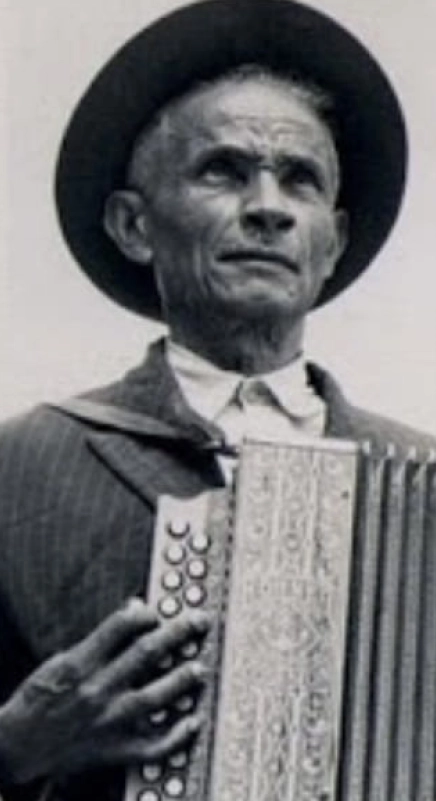About

How ARJ Came About
Created in 2000 in Recife by professors and students from the UFPE Music Department, the Respeita Januário Association pays homage to Januário, father of Luiz Gonzaga—a master accordionist and symbol of Northeastern musical tradition. Unlike his famous son, Januário remained in the backlands, never moving to the big city, nor exchanging his eight-bass accordion for the more modern piano-keyboard accordions.
ARJ believes that traditional music from the Northeast is more than a heritage: it is a living expression of the people. It is present in the festivals, religious celebrations, work, and daily lives of Northeastern families. It is not just sound—it is memory, identity, and resistance.
Even though its cultural value is recognized by artists and thinkers such as Ariano Suassuna, Mário de Andrade, and Villa-Lobos, this wealth still lacks effective public policies, research, and true appreciation. Therefore, ARJ works to record, disseminate, and strengthen this heritage, always in dialogue with those who keep it alive: the masters of popular culture themselves.
With initiatives ranging from research to the production of CDs, videos, seminars, and a constantly expanding digital collection, we seek to contribute to the recognition and strengthening of this knowledge—living, human, and our own. Learn who makes up the Respeita Januário Association (link to the Who Makes ARJ page).
Who Makes ARJ
The Respeita Januário Association brings together people who have maintained close contact with the world of traditional Northeastern music for several years. It also brings together highly qualified academics in the fields of music and social sciences, particularly from UFPE. Its advisory and fiscal councils include individuals with renowned expertise in the field. Finally, ARJ has as corresponding members important experts in traditional music and popular culture from other Brazilian states and also abroad.
The ARJ Coordination is composed of:
General Coordinator, Dr. Carlos Sandroni, ethnomusicologist, professor in the Department of Music and the Master’s in Anthropology at UFPE
Vice-General Coordinator, Virgínia Barbosa, Bachelor of Music from UFPE
Project Coordinator, Cristina Barbosa, Bachelor of Music from UFPE
Vice-Project Coordinator, José Guilherme Allen, Bachelor of Music from UFPE
Financial and Asset Coordinator, Paulo Rosas, musician and lawyer
Vice-Financial and Asset Coordinator, Guilherme Medeiros, musician and Master’s student in History at UFPE
Secretary, Guiomar Ribas, Master of Education, professor at the Vocational Center for Musical Creativity in Recife
Vice-Secretary, Adriana Milet, Bachelor of Education from FUNESO (Olinda)
The members of the ARJ Advisory Board are:
Antônio Carlos Nóbrega, Composer, dancer, and singer
Antônio José Madureira, composer, one of the creators of the Quinteto Armorial.
Cirinéia do Amaral, researcher and professor at UFPE
Dinara Pessoa, ethnomusicologist and professor at UFPE
Hildo Leal, master’s degree in History, researcher at the Pernambuco State Public Archives
José Amaro Santos da Silva, master’s degree in Musicology, head of the Music Department at UFPE
Dr. Renato Athias, anthropologist, with works on the Indigenous people of the Upper Rio Negro (AM) and Pernambuco
Roberto Benjamin, researcher and president of the Pernambuco Folklore Commission
Dr. Roberto Motta, anthropologist, author of important studies on Afro-Brazilian cults in Recife
Sérgio “Siba” Veloso, composer and member of the Mestre Ambrósio group
Our Fiscal Council includes:
Cristiane Almeida, professor at UFPE, member of the board of directors of the Brazilian Association of Music Education
Dr. Geber Ramalho, professor in the Department of Computer Science at UFPE and musician
Dr. Paulo Cristóvão de Lima, composer and professor at UFPE
Ronaldo Brito, playwright and researcher of popular culture
Virginia Souza, social worker
Corresponding members of ARJ include:
Dr. Angela Lühning, ethnomusicologist, professor at UFBA
Dr. Rafael Menezes Bastos, ethnomusicologist, professor at UFSC
Dr. Rosângela Pereira de Tugny, musicologist, professor at UFMG
Dr. Samuel Araújo, ethnomusicologist, professor at UFRJ
Dr. Jean-Michel Beaudet, Ethnomusicologist, professor at Université Paris-X
Dr. Salwa El-Shawan Castelo Branco, ethnomusicologist, professor at Universidade Nova de Lisboa
Objective
Strengthening the bonds between culture, memory, and belonging—that’s what the Respeita Januário Association exists for!
Our main goal is to contribute to the recognition and appreciation of the traditional culture of the Northeast as a living, diverse, and fundamental expression of Brazilian identity.
We believe that preserving means listening, dialoguing, and walking alongside the masters and communities that maintain this ever-vibrant cultural heritage.
We work to make this knowledge even more visible by investing in research, training, dissemination, and cultural articulation. We seek to build bridges between generations, territories, and languages—always with respect for their origins and




